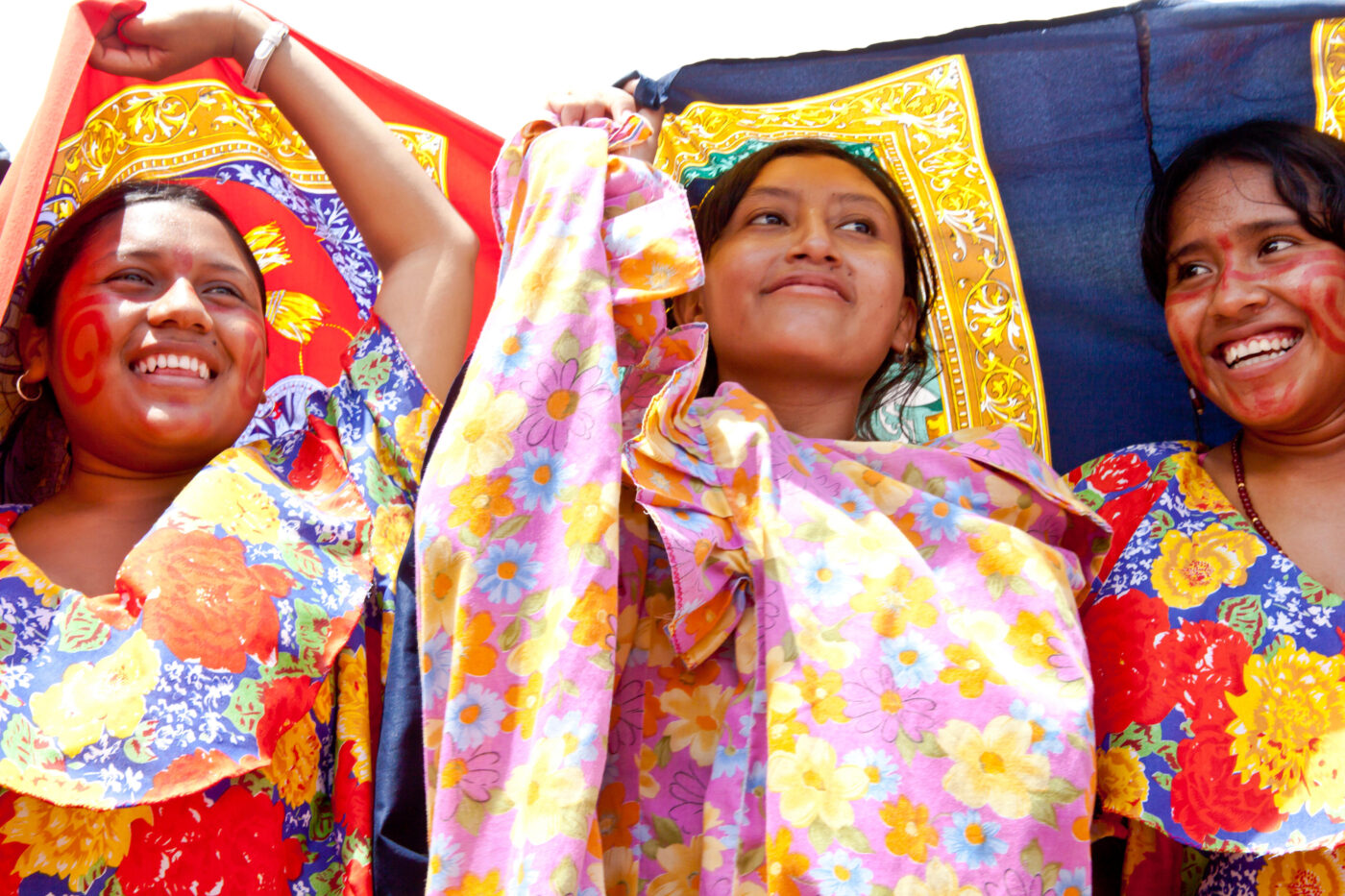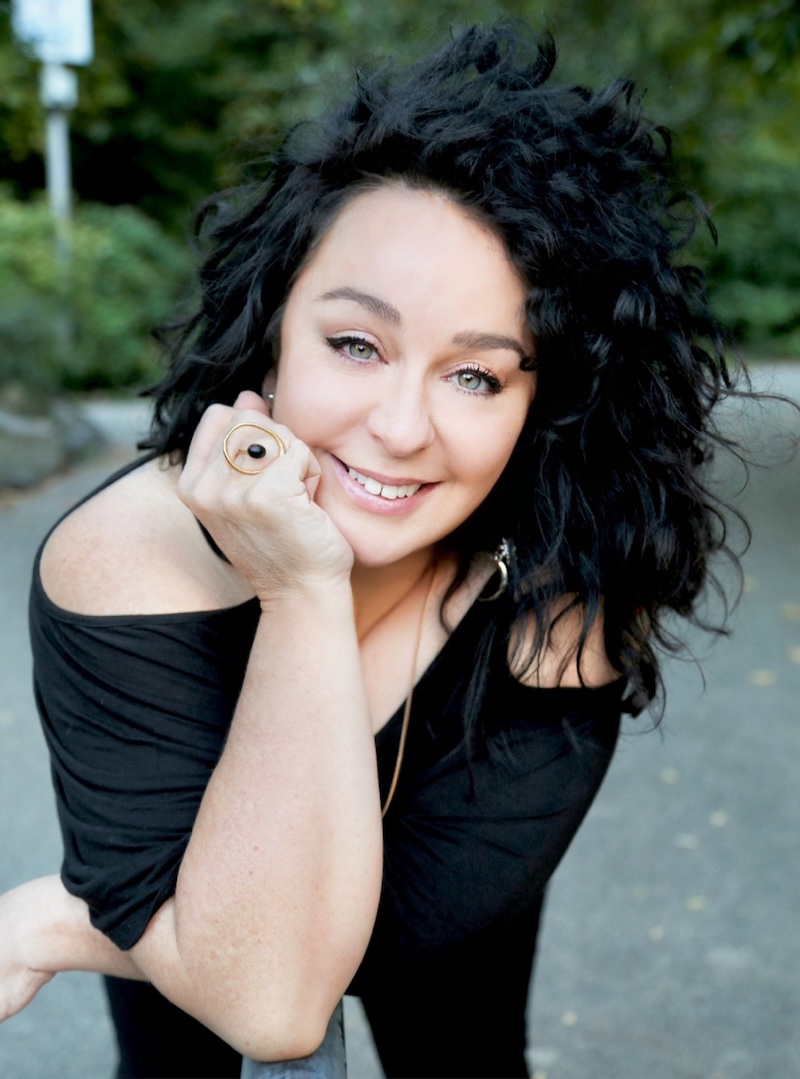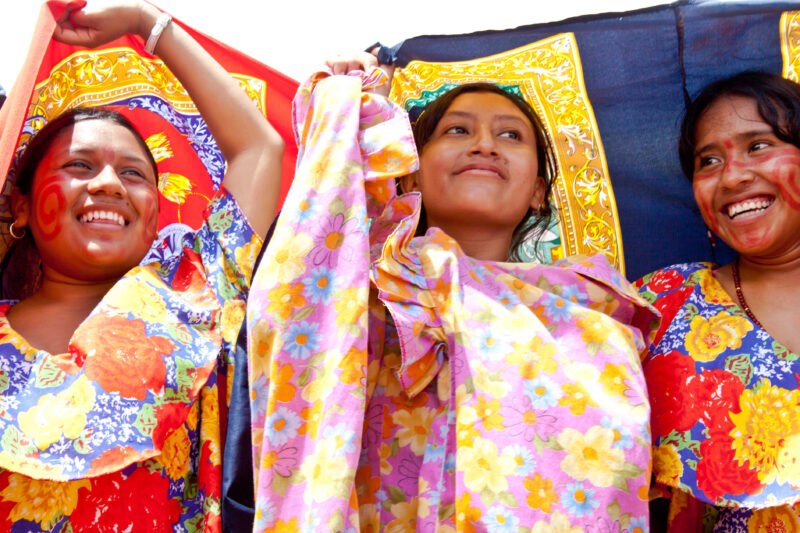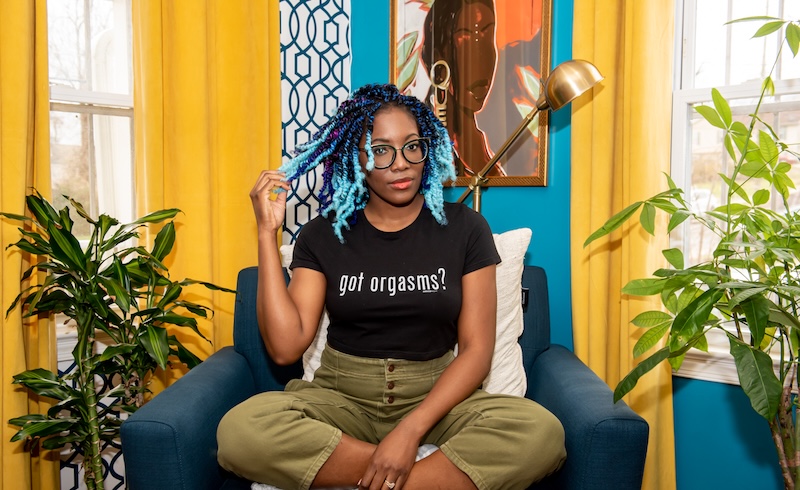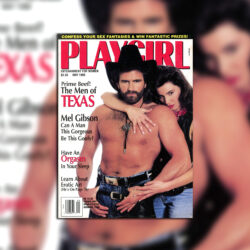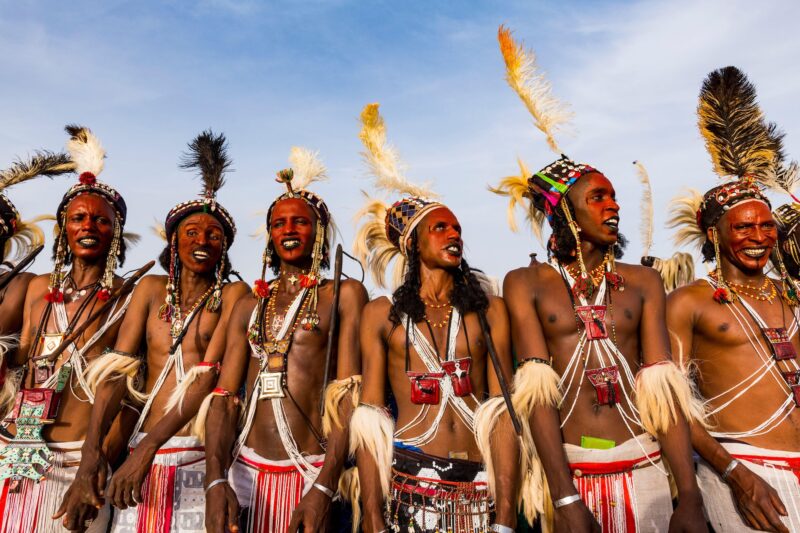Who’s the boss?
In Western society, it’s almost always men –especially when it comes to courtship. Which is not only sexist, but, according to Nigerian-American sex therapist, Donna Oriowo, against nature itself.
“For most animals, it is the male species trying to get the attention of the female species,” says Oriowo. “The colorful peacock is the male peacock, and he will do everything in his power to get that gray female peacock to notice him. So, nature sets the example on what courtship should look like. But people have reversed course.”
For courting humans, male or female, the onus on grabbing attention should be at a minimum evenly split. The means of attracting such attention? Flirting! “Talking. Laughing. Listening. We underestimate the power of these as a turn on,” says Cyndi Darnell, an Australian born, Manhattan based author, and sex and relationship specialist. “If you are into someone, a man or a woman, whoever, and you listen to them, and you make them feel like they are the center of the universe, that is the biggest fucking aphrodisiac on the planet.”
Elisabeth Gordon, an American born, certified sex therapist, agrees. “You get a little zing, and that boost in self-confidence, that tingle of awareness, that little bit of arousal. All of these things feel good!”
Post virginity, flirting, fun and foreplay are major milestones for the lover who is in pursuit of sexual pleasure.
Just ask the Guajiro people of Colombia. This tribe is known for a distinctive dance which is key to courtship between men and women. Their delicate moves have a definite point: sex! If a woman trips a man during the ceremonial dance, they must make love. It’s a playful lead up to intercourse that is as unexpected as another tradition from the Elizabethan era. At the time, English and European women would gift sliced apples soaked in their sweat. This DIY aphrodisiac was often created by women by inserting apples under their arms before an evening of revelry and gifted to a lover of their choice at the end of the night.
These traditions speak to a modern trend that Gordon coins as “coreplay.” Here, the focus is on fun and exploration and pleasure in all its forms. “I like that term because it really is: what is core, what is the core of the engagement? And that could be whatever you want it to be. We don’t want to privilege [penis and vagina] intercourse. Intercourse can be great. And if you are somebody who doesn’t have access to IVF, and you’re interested in having offspring, then yes, intercourse can be really helpful. But otherwise, if it feels good, great!”
An example is the Ukusoma, a sexual practice still common among the Zulus of South Africa. It is a form of penetration of the thighs, but it involves no access to the vagina. A way to experience all the sensations without full-on vaginal penetration. And when penetration does occur, some cultures have rituals that heighten the experience. In the Indonesian islands, it is customary for men to have small balls or bells, usually crafted of metal, surgically inserted into their foreskin. This practice is intended for the sexual pleasure of the women, and some women would not sleep with men without those balls/bells.
For Christine Que My Ha, a Vietnamese-American Sex and Gender Scholar based in Ho Chi Minh City, the biggest difference between these customs and modern dating is how casual and shallow courtship and sex can feel. As a Gen Z woman who has dated in both the U.S and Vietnam she has a unique perspective. “Dating and courtships are still happening. Most men still ask for and pay for the first date,” she acknowledges, “But hookup culture and situationships have really taken over courting and sexual practices in modern day. I’m not saying there isn’t romantic love happening, but there isn’t that traditional sensibility.”
This shift is a symptom of how the internet has impacted our Western courtship and dating rituals, says Oriowo. “Now courtship rituals may look like ‘I have to first decide whether or not I am willing to entertain anyone. And if I am, then now I get on Tinder or Bumble, whatever, so that you can create or update your profile and begin to swipe left or right.’ This is the beginning of choosing who you are willing to enter a courtship ritual with.”
Once courtship commences, communication more than anything is the key to the dance. “The texting back and forth or even the messaging back and forth on the app is one part. And then choosing whether or not that person gets your real number or your fake phone number, or if you’re just going to move them over to ‘you can follow me now on social media.’ And then they can graduate again to your phone number. And then you talk back and forth there. And then I would like to see your face via FaceTime. And then I would like to meet you for coffee or for dinner. This is the new courtship ritual. It’s not disappeared. It’s evolved.”
Technology has also expanded our options. Today, thanks to apps, the internet and social media, our options are no longer limited to our community or culture. “Let’s say in the context of hooking up with a Westerner,” says Que My Ha, “I can shift [my perspective on sex]. I’m like, ‘Oh, this is okay to do because in the West, hookup culture is normalized. But then let’s say I’m hooking up with a Vietnamese person, I’m like: ‘Oh my god, I am a woman, I do not conform to the Vietnamese woman’s standards!’ And where does that come from? That comes from all these colonial teachings.”
Oriowo agrees. “Capitalism. Patriarchy. Colonization. These things feel like they’re unconnected from sex and yet they’re so connected to sex that we could be here all day talking about that connection. Colonization is the act of someone who believes that they should have what someone else has. How is that not the same thing as what women are often taught should happen in sex? Some man should come, take what he wants from you and that will be the end. That is the colonization of the woman’s body.”
Reclaiming agency, independence and power in the pursuit of pleasure begins with first defining what is pleasurable to you. “The problem is that sometimes we don’t know what we want,” says Oriowo. “We are so worried about contorting ourselves, changing ourselves, lopping pieces off in order for this person to want to be with us, that we are not as familiar with how delicious we are, or how amazing we are. So, when someone says something about us ain’t delicious, we believe them.”
Too much of this can make courtship and dating feel like an imbalance in power. Discovering what you like in yourself, in your lover, in your sexual life, is a way to reset. Swati Jagdish, a sex psychologist based in India, compares the process to her earliest memories of food. “We have this festival called Onam in Kerala, where we eat on a banana leaf. And we present what feels like thousands of items on the leaf. It’s so beautiful. When my mom makes elaborate meals for the festival, she starts at 3am or 4 am making certain preparations, cutting, and chopping. By 12 or 12:30 pm, there is an aroma that fills the home. And then she serves everything on leaves. And you know what? She eats the least compared to everyone!”
For a young Swati, her mother’s lack of indulgence seemed odd. But adulthood brought a revelation: she’d already sampled and enjoyed everything during the cooking and could now pick the perfect plate without overeating. “I realized during the process, she would have tasted everything, she would have gotten used to all the flavors. So, by the time she comes and sits to eat, she doesn’t need the whole thing. She is like a little bit here and there and she is done.” The same applies to us. Whether we’re single, dating or courting, let’s savor every step of being a lover. Let’s understand the perfect flavor we are seeking in our pleasure –and our ideal partner. “It should be play,” says Gordon, “That’s a healthy way of going about it. It should be fun. It should be imaginative. It should give you pleasure that is healthy sex.” And the healthiest of all is when sex is on your terms.
The conversation continues in Part Three of our series, available next month.

